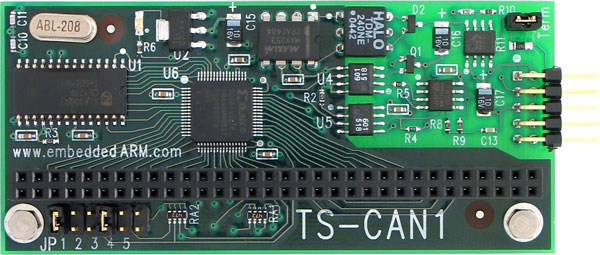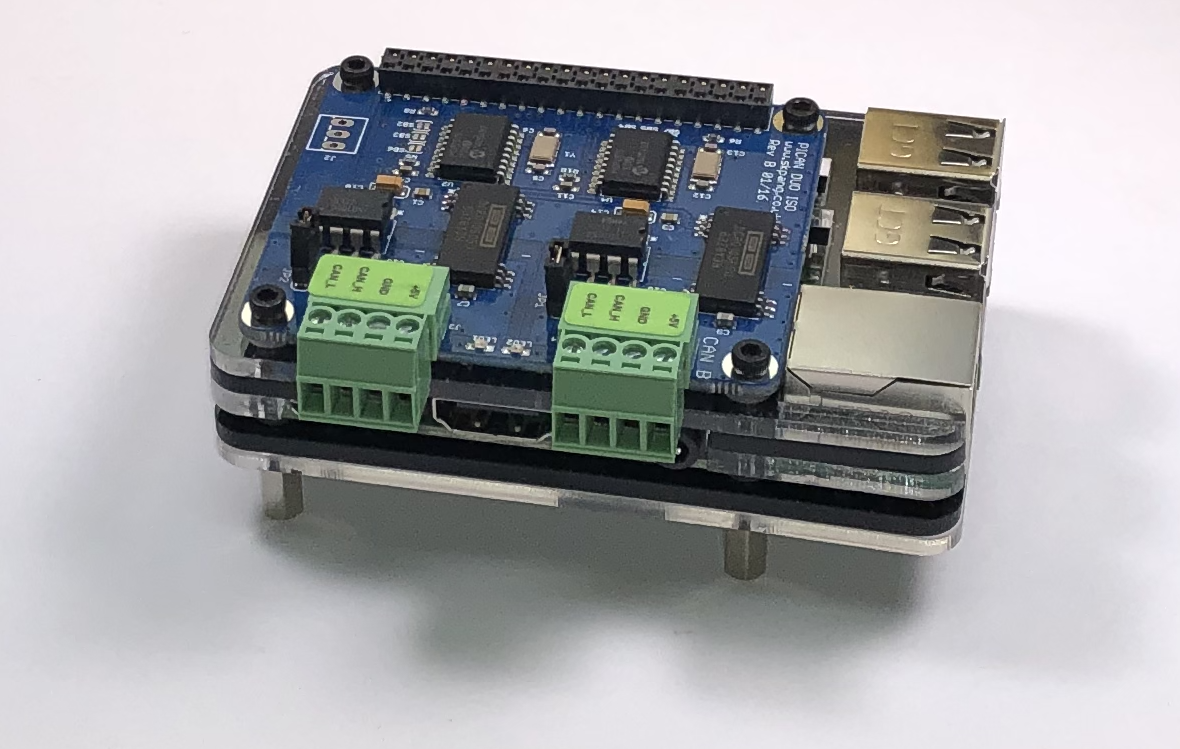Recent Posts
CAN Bus PC/104 Peripheral Interface Comes With CAN Bus And CANopen Open Source Libraries For Linux
Posted by on
The TS-CAN1 by Technologic Systems is a PC/104 daughter board which provides a single channel CAN interface and allows a PC/104 embedded system to be connected to CAN Bus networks.
The board utilizes the Philips SJA1000 CAN controller which is opto-isolated from the physical CAN Bus network, thus increasing the system reliability. It is also available without opto-isolation, in case of CAN Bus devices that use long wire connections where propagation delay might be a problem.
On-board jumpers are used to select both the interrupt and the I/O region. Up to four boards can be installed in any single system. The SJA1000 controller can be configured to interface with the processor through 8 different 32-bytes I/O regions.
TS-CAN1 is compatible with both X86 and ARM architectures; it can be used with the Technologic Systems X86 and ARM-based embedded boards. The TS-CAN1 manual is available per download.
The TS-CAN1 uses the Ocera framework as the principal software package. Ocera offers the Lincan driver for Linux and a full set of development libraries, like Libvca, and testing tools, allowing smooth and fast development integration. Moreover, Ocera/Lincan supports the CANOpen higher-level protocol (HLP). The Lincan driver supports both BasiCAN and PeliCAN, enabling 11-bit and 29-bit identifiers, respectively. The Ocera code base is open-source and is available under the terms of the GPL.
Technologic Systems provides a "Getting Started Guide" and a tarball with the entire OCERA/LINCAN compiled for both ARM and X86 architectures.
Features
- Philips SJA1000 CAN controller
- Opto-isolated CAN interface
- Also available without opto-isolation
- Up to 1Mbps bit rate
- Jumper selectable termination resistor
Raspberry Pi 3 B+ System With Dual Isolated CAN Bus Interface
Our Raspberry Pi 3 System With CAN Bus Interface (PiCAN2) comes with a pre-installed Raspbian operating system.
The PiCAN2 DUO ISO board provides Controller Area Network (CAN) Bus capabilities for the Raspberry Pi. It uses the Microchip MCP2515 CAN controller with MCP2551 CAN transceiver. Connection are made via 4-way screw terminals.
There is an easy-to-install SocketCAN driver, and programming can be accomplished in C or Python.
System Features
- Raspberry Pi 3, Model B+, 1 GB RAM.
- Raspberry Pi 16GB Preloaded (NOOBS) SD Card.
- PiCAN2 - CAN Bus Interface for Raspberry Pi.
- The enclosure is made from High Impact Polystyrene HIPS UL94-HB material. Mounting flanges allow for wall mounting.
 Loading... Please wait...
Loading... Please wait...


